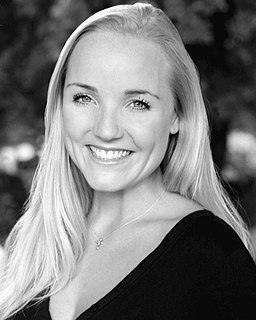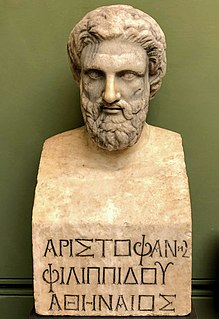A Quote by Judith Martin
She only maintains that it is possible, under some circumstances, for a lady to murder her husband; but that a woman who wears ankle-strap shoes and smokes on the street corner, though she may be a joy to all who know her and have devoted her life to charity, could never qualify as a lady.
Related Quotes
I. At Tea THE kettle descants in a cosy drone, And the young wife looks in her husband's face, And then in her guest's, and shows in her own Her sense that she fills an envied place; And the visiting lady is all abloom, And says there was never so sweet a room. And the happy young housewife does not know That the woman beside her was his first choice, Till the fates ordained it could not be so.... Betraying nothing in look or voice The guest sits smiling and sips her tea, And he throws her a stray glance yearningly.
Later on Lady Maccon was to describe that particular day as the worst of her life. She had neither the soul nor the romanticism to consider childbirth magical or emotionally transporting. So far as she could gather it mostly involved pain indignity and mess. There was nothing engaging or appealing about the process. And as she told her husband firmly she intended never to go through it again.
To commit herself to becoming "an apostle of Joy" when humanly speaking she might have felt at the brink of despair, was heroic indeed. She could do so because her joy was rooted in the certitude of the ultimate goodness of God's loving plan for her. And though her faith in this truth did not touch her soul with consolation, she ventured to meet the challenges of life with a smile. Her one lever was her blind trust in God.
One thing I did have under my belt was, my mother lost her mother when she was 11. She mourned her mother her whole life and made my grandmother seem present even though I never met her. I couldn't imagine how my mom could go on but she did, she took care of us, she worked two jobs and had four children. She was such a good example of how to conduct oneself in a time of grief. When I lost my husband, I tried to model myself as much as I could on her.
Charity never lacks what is her own, all that she needs for her own security. Not alone does she have it, she abounds with it. She wants this abundance for herself that she may share it with all; and she reserves enough for herself so that she disappoints nobody. For charity is perfect only when full.
It's right around this time that her Grandmother Hall dies. And Eleanor Roosevelt is responsible for making all the funeral arrangements. And there are a couple of things that she really understands, as she contemplates her grandmother's life and makes the funeral arrangements. One, she's really talented, an organizational woman. She knows how to do things. She begins to compare her life to her grandmother's life. And it's very clear to her that being a devoted wife and a devoted mother is not enough.
There is simply no dignified way for a woman to live alone. Oh, she can get along financially perhaps (though not nearly as well as a man), but emotionally she is never left in peace. Her friends, her family, her fellow workers never let her forget that her husbandlessness, her childlessness - her selfishness, in short - is a reproach to the American way of life.
I've been afraid of being Cansrel,' she said aloud to her reflection. 'But I'm not Cansrel.' At her elbow, Musa said blandly, 'Any one of us could have told you that, Lady.' Fire looked at the captain of her guard and laughed, because she wasn't Cansrel- she wasn't anyone but herself. She had no one's path to follow; her path was her own to choose.
My mother could never have said she loved fall, but as she walked down the steps with her suitcase in hand toward the red Monte Carlo her husband had been waiting in for nearly an hour, she could have said that she respected its place as a mediator between two extremes. Fall came and went, while winter was endured and summer was revered. Fall was the repose that made both possible and bearable, and now here she was was with her husband next to her, heading headlong into an early-fall afternoon with only the vaguest ideas of who they were becoming and what came next.
When the soldier returns from the wars, even though he has white hair, he very soon finds a young wife. But a woman has only one summer; if she does not make hay while the sun shines, no one will afterwards have anything to say to her, and she spends her days consulting oracles that never send her a husband.
The extraordinary woman depends on the ordinary woman. It is only when we know what were the conditions of the average woman's life - the number of children, whether she had money of her own, if she had a room to herself, whether she had help bringing up her family, if she had servants, whether part of the housework was her task - it is only when we can measure the way of life and experience made possible to the ordinary woman that we can account for the success or failure of the extraordinary woman as a writer.


































